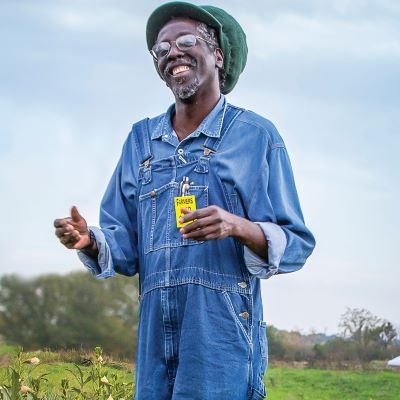Black Food Sovereignty

Photo source: EFAO
3B approach to our work: Black-led, Black-mandated and Black-serving
Food sovereignty is the right of people to healthy and culturally appropriate food produced through ecologically sound and sustainable methods. More importantly, it is the right to define and control our own food and agriculture systems, including markets, production modes, food cultures, environments and write and educate our communities in regards to this New Food Movement. I will be documenting the evolution of this new movement in Africa and the Black Diaspora and the emergence of the 3B approach to our work: Black-led, Black-mandated and Black-serving. Our autonomy of the Black Food Sovereignty movement in Canada is very critical in regards to the state of Food Insecurity in Canada, where 46.3 % of Black Children are food insecure and nearly 40 % of our community is food insecure in one of the most wealthy nations in the world. Black Food sovereignty is the right of people of African descent to healthy and culturally appropriate food produced through ecologically sound and sustainable methods. More importantly, it is our right to define and control our own food and agriculture systems, including markets, production modes, food cultures, environments and write and educate our communities in regards to this new Food Movement.
Cuisine Noir Feature on Regenerative Farm Techniques
What is the Black Food Sovereignty policy? Anan Lololi
BFSP Food policy is now being developed to guide People of African descent (Black communities) food-related decisions and actions. We are looking at an approach to understanding and addressing the linkages within food systems (wherever People of African descent are located) and a plan for making decisions about our food experience, that affirms the importance of African history, culture, and values as a foundation for understanding the contemporary experiences of African communities’ food systems that are sustainable and just.
As people of African descent throughout the world our food ways our food history how we did it; how we became who we are, what we grew, how we processed what we grew, how we cooked it, preserved it, how we sold it, how we celebrated our harvest and governed our sustainable food systems.
African States and Empires pre colonization Food Sovereignty - The Oyo Empire was a Yoruba empire in West Africa. It was located in present-day southern Benin and western Nigeria (including the South West zone and the western half of the North Central zone). The empire grew to become the largest Yoruba-speaking state through the organizational and administrative efforts of the Yoruba people, trade, as well as the military use of cavalry. The Oyo Empire was one of the most politically important states in Western Africa from the mid-17th to the late 18th century and held sway not only over most of the other kingdoms in Yorubaland, but also over nearby African states, notably the Fon Kingdom of Dahomey in the modern Republic of Benin on its west.
During the colonial period, the Yorubas were one of the most urbanized groups in Africa. About 22% of the population lived in large areas with populations exceeding 100,000, and over 50% lived in cities made up of 25,000 or more people.
How we got to where we are presently, in this critical food insecurity crisis (From Slavery to Black Food Sovereignty). Systemic racism is in the food system, the answers are in the hands of the decisions makers to create a food secure environment for all, in our community. In people of African descent lives, we have to develop the Black Food Sovereignty policy – we have to begin our collective journey; our BFS Vision: setting a common direction for the future of Black food, how do we get there, the Pan-African Vison of Food Sovereignty – Black Food Sovereignty.
This approach locally we hope can help guide public, private, and non-profit sector actions related to improving food-related outcomes for People of African descent in Canada, and at the same time create space for working together across Black Communities on our Pan-African Unity. It can also help individual Canadians understand influences and opportunities for change within the Canadian food system.
We will work with governments at all levels to educate them on this new Black Food Movement – Black Food Sovereignty.
Key thinkers and leaders (International Collective)
- Anan Lololi
- Anan Xola Lololi, 27 Years of Black Food Sovereignty, and Counting
- Anan Loloi – Seed Heads Podcast
- Biogaphy - Anan Xola Lololi
- YouTube: Anan Lololi
- Seed Security: Anan Lololi
- Black Food Sovereignty Alliance
Black Food Sovereignty Key readings
- Black Food Sovereignty Alliance of Toronto (BFSAT)
- Toronto Black Food Sovereignty Plan
- Black food matters: racial justice in the wake of food justice
- Beyond the kitchen table: Black women and global food systems
- Farming While Black: Soul Fire Farm's Practical Guide to Liberation on the Land
Black Food Sovereignty Alliance
Black Food Sovereignty Initiatives:
Resources